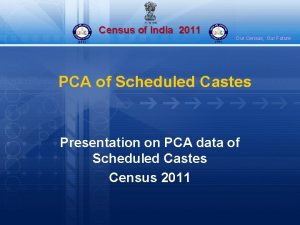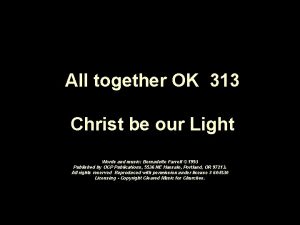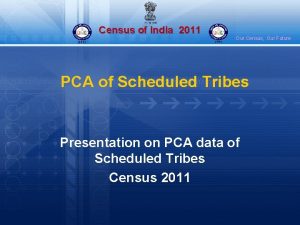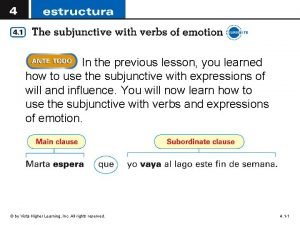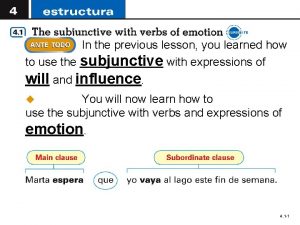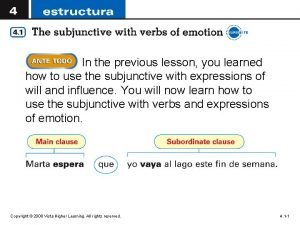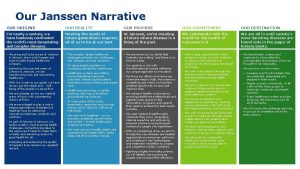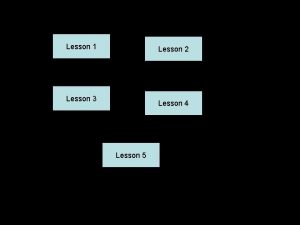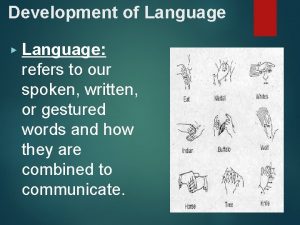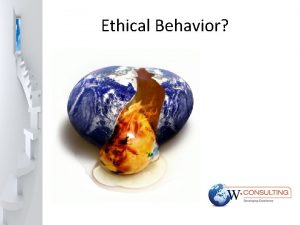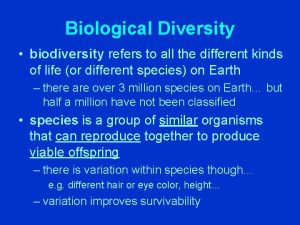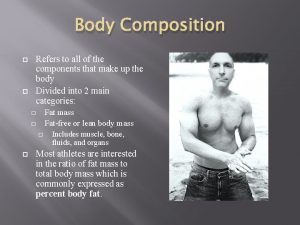Lesson 1 Preunderstanding Refers to all of our




































- Slides: 36

Lesson 1

Preunderstanding Refers to all of our preconceived notions and understandings that we _____the text, which have been ______, both consciously and subconsciously, _______we actually study the text in detail.

Preunderstanding Dangers • _________________

Preunderstanding Dangers Pride “encourages us to think that we have got the correct meaning _______ we have made the appropriate _______ to recover it. Pride does not listen. _____. ” Kevin Vanhoozer

Preunderstanding Dangers • We ____ in the biblical text with explanations and background from ______. • Our cultural background ____ the possibilities of a text even before we _____ with the intended meaning.

Interpretive “Gaps” There are six “____” that the ______ must consider. A Time Gap (_______) A Place Gap (______) A Customs Gap (____) A Language Gap (_____) A Writing Gap (____) A Spiritual/Religious Gap (______)

Preunderstanding Conclusion Foundational Beliefs While we must let our preunderstanding change each time, we study a passage, foundational beliefs __ ______ as we read a passage. _______ are connected to our _______ view of the Bible.

Preunderstanding Conclusion Foundational Beliefs • The Bible is the ____ of ___. • The Bible is ______ and ____. • God has _______ human history; thus the ______ does occur. • The Bible is not contradictory; it is _______, yet ____. • He’s going to put an ___ to ___. • He’s ______again.

Glossary _______ Centering Theologically on Christ ____ Critical Explanation or Interpretation of a Text ____ introduction, foreword, preface, preamble, prelude,

Glossary _____ The study of the origin of words and the way in which their meanings have changed throughout history. ______ The study of the nature of God and religious belief.

Glossary ______ Is theory and methodology of interpretation, The Science of it. ____ (Lk. 16: 19 -31). A story, poem, or picture that can be interpreted to reveal a hidden meaning, typically a moral or political one. Real World Issues. (Myth, Tale, Legend, Fable)

Presentation Purpose To introduce a Christocentric, exegetical (______) method of Bible interpretation. Preparation for Revelation A ______ Method

Preparation The Study of Revelation A Reminder Prologue’s Emphasis (Rev. 1: 1) A _____ of Jesus Christ.

Preparation The Study of Revelation Col 2: 2 -10 2 I want you woven into a tapestry of love, in touch with ______ there is to ____ of ___. Then you will have minds _____ and at _____, focused on ______, God's great _______.

Preparation The Study of Revelation 3 All the richest treasures of ______ and _____ are ____ in that mystery and _______ else. And we've been shown the _______! 4 I'm telling you this because I don't want anyone leading you off on some wild-goose chase, after other __-______, or "the. ______. "

Preparation The Study of Revelation 7 You’re ______in ___. You’re ________upon him. You know your way around the faith. Now do what you've been ______. School's out; quit studying the subject and ______it! And let your living _____ into ______.

Preparation The Study of Revelation 8 Watch out for people who try to ______you with___ _____and______ - ____. They want to drag you off into _________ that never amount to anything. They ______ their ideas through the __________of human beings and the _________of spirit beings. But that’s the ___ of Christ.

Preparation The Study of Revelation 9 _____ of God gets _____ in ___, so you can___ and ____him _______. You don't need a telescope, a microscope, or a horoscope to realize the fullness of Christ, and the emptiness of the universe without him. 10 When you ____ to ___, that comes ____ for you, too. _____extends over _____. THE MESSAGE

How to Interpret the Bible A Christological Method ØPreparation ØExegesis Ø Christocentric Interpretation ØSignificance ØTransmission Format ______

Grasping God’s Word The Interpretive Journey Duvall and Hays “Grasping the Text in Their Town” Key Question: What did the text mean to the biblical audience? Necessary Analysis: Read the text carefully and make observations. Preparation Exegesis Christocentric Interpretation

Grasping God’s Word The Interpretive Journey Duvall and Hays Necessary Analysis: Study the historical/cultural context to clarify what the text meant then. Manufacture the meaning of the passage for the biblical audience.

Grasping God’s Word The Interpretive Journey Necessary Analysis: “Measuring the Width of the River to Cross” Key Question: What are the differences between the biblical audience and us?

Grasping God’s Word The Interpretive Journey Necessary Analysis: Account for common differences: culture, language situation, time and covenant. Focus on the unique differences found in a specific text.

Comparison Historical-Cultural/Literary Exegesis Key Question: How does our theological principle revealed in the passage fit with the rest of the Bible? Necessary Analysis: Does this principle correlate with the rest of the Bible?

Journey into God’s Word Your Guide to Understanding and Applying the Bible Necessary Analysis: If in the Old Testament, run your theological principle through the grid of the New Testament.

Grasping God’s Word Literary Exegesis-Word Studies Necessary Analysis: If in the Old Testament, run your theological principle through the grid of the New Testament.

How to Interpret Scripture Literary Exegesis Establish the literary context Literary exegesis has three important dimensions; genre, grammar, and context. Identify the genre, i. e. , the type of biblical literature genre conventions (parables, letters, poetry, proverbs, prayers, speeches, allegories, history, laws, contracts, biography, drama, apocalypse, and stories)

How to Interpret Scripture Literary Exegesis-Immediate Context Read: Lk. 15: 11 -23 Beginning of Context: Luke 15: 1 -2 Now the __________ and “_______” were gathering around to ____ him. But the _____ and the _______of ____ muttered, "This man _______ and eats with them. ”

How to Interpret Scripture Literary Exegesis-Immediate Context End of Context: Luke: 16: 14 -15 14 The _____, who ______ their _____, heard all this and _______ at him. 15 Then he said to them, "You like to _________ in ______, but ___ knows your ______. What this ______ is _____ in the _____ of God.

How to Interpret Scripture Literary Exegesis-Immediate Context Get it! The so-called parable of the “Prodigal Son” must be interpreted in context. The immediate context raises ______ questions. Who were the Pharisees? What do they _______ and _____ about _______ and ____? Why does Jesus vehemently ______ their ____?

Pharisaic Profile Historical Context Who were the Pharisees? _______ “_______” Name means “_____” Mainly a party of religio-political _______ Pharisees considered most _____ sect in Israel Administered synagogues They viewed themselves as _____ of The ____Esp. ____

Pharisaic Profile Historical Context Who were the Pharisees? They “sought a new, communal commitment to a _______ way of life based on adherence to the covenant. ” (Saldarini, Pharisses, Scribes and Sadducees) Focused on _____(eternal ritual) _______

Pharisaic Profile Historical Context What do they believe and teach about sinners and God? Pharisees with contempt _______ on the “______” who comprised 90% of the Palestinian population Regarded them as _______ and ______ as far as possible any _______ with them.

Pharisaic Profile Historical Context What do they believe and teach about sinners and God? Common Jews were not to be called as witnesses in court or appointed as guardians of orphans Key Point Scribes and Pharisees ____ and _______ that God shared their _____ toward ____!

Pharisaic Profile Historical Context What do they believe and teach about sinners and God? __ ______was to be entrusted to them No Pharisee should ___ with them _______ with them was _____; their ______ were called “_______. ”

The Gospel Jesus says, And I, if I am lifted up from the earth, will draw all men and women to Myself. ” Jn. 12: 32 Amen
 Name all the lines
Name all the lines Thinking affects our language which then affects our
Thinking affects our language which then affects our Our census our future
Our census our future Ok 313
Ok 313 Our life is what our thoughts make it
Our life is what our thoughts make it We bow our hearts
We bow our hearts Our census our future
Our census our future Our life is what our thoughts make it
Our life is what our thoughts make it Money madness poem by dh lawrence
Money madness poem by dh lawrence Awareness of ourselves and our environment is
Awareness of ourselves and our environment is Awareness of ourselves and our environment is
Awareness of ourselves and our environment is God our father christ our brother
God our father christ our brother Our future is in our hands quotes
Our future is in our hands quotes Awareness of ourselves and our environment is
Awareness of ourselves and our environment is Awareness of ourselves and our environment
Awareness of ourselves and our environment Internal environment factors
Internal environment factors King jesus your the name we're lifting high
King jesus your the name we're lifting high Thank you to all our sponsors
Thank you to all our sponsors Oh lord how excellent is thy name
Oh lord how excellent is thy name Greeting for presentation
Greeting for presentation Welcome to our lesson
Welcome to our lesson What have you learned from our previous lesson
What have you learned from our previous lesson Economic systems lesson 2 our economic choices
Economic systems lesson 2 our economic choices Welcome to the lesson
Welcome to the lesson Our english class
Our english class In your previous lesson you have learned
In your previous lesson you have learned Before we start our lesson
Before we start our lesson Welcome to our english class
Welcome to our english class Hajangs
Hajangs In the previous lesson you have learned that
In the previous lesson you have learned that Autumn unscramble
Autumn unscramble A healthful eating plan can include sensible snacks
A healthful eating plan can include sensible snacks Are you ready for today's lesson
Are you ready for today's lesson Welcome to our english lesson
Welcome to our english lesson Furkan uddin
Furkan uddin Love all serve all help ever hurt never meaning in hindi
Love all serve all help ever hurt never meaning in hindi Interventi sociali rivolti all'infanzia e all'adolescenza
Interventi sociali rivolti all'infanzia e all'adolescenza


